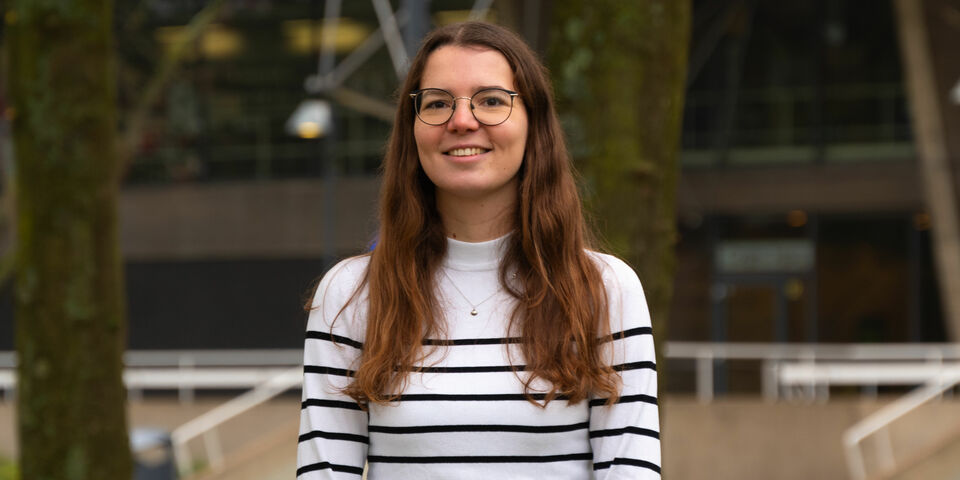The importance of duty to listen
It’s the Monday after the carnival break, and I’m standing together with faction member Gabriël in Atlas with our so-called ‘complain train’. This is a train-shaped board where students can post complaints or suggestions for improvements for the university. We both try to engage students by asking: “Do you have anything to complain about?” We sense that many students prefer not to be approached, but some look at us curiously and show interest in the question.
Once I start talking to students, there is always something that comes up where they think, "Yes, that could indeed be better". Most often, it’s about the high cafeteria prices or the opening times of buildings, but occasionally, there are points I’ve never considered before, and that is exactly what makes it so valuable!
As a student member of the University Council, I try to represent the perspectives of students as accurately as possible in the plans of the Executive Board. In total, we are with nine students each with our own background due to which we collectively represent a large group of students. However, it is impossible for nine students to represent the interests of all (almost) 14.000 students at TU/e.
Achievements
We can try our best to imagine what students might want, but we should never assume how others experience certain issues or what problems they face. The only way to truly understand this is by having conversations with students and by listening to their experiences.
Now, you might think that an individual opinion or complaint will not make a difference, but that’s not true. Student faction Groep-één has for example after input from students, arranged that free menstrual products can be picked up on campus at every reception and that a pilot with confidants for student team members was set-up.
Especially at a university, where students are a crucial part of the organization, it is important that the opinions and perspectives of the students are taken into account. Myself and the other members of the University Council, but for example also teachers, policy makers and the Executive Board, we all have an important task to validate whether we are representing the actual student community in our ideas.
Positive feedback
It might seem like this is all about negative feedback and areas for improvement, but during a complain train I also make sure to ask what people think is good at the university. Positive feedback is not only a great motivator, but it also ensures that good things don’t just disappear. It would be a shame if great initiatives were discontinued simply because people didn’t feel they were appreciated.
However, it is essential that students share their insights. Whether they do this by filling out course evaluations, talking with students in the University Council, sharing their opinion during the complain train or input sessions, or in another way, that doesn’t matter. Every contribution is valuable. With this in mind, I would like to invite students: let your voice hear, show what you find important, and let’s work together to make this university a place where everyone feels at home even more and opinions matter more!
Charlotte van Kints is a master's student of Applied Physics and is a member of the University Council on behalf of Groep-één. She writes this column in a personal capacity.
For reactions and suggestions mail to charlotte@groep-een.com.


Discussion